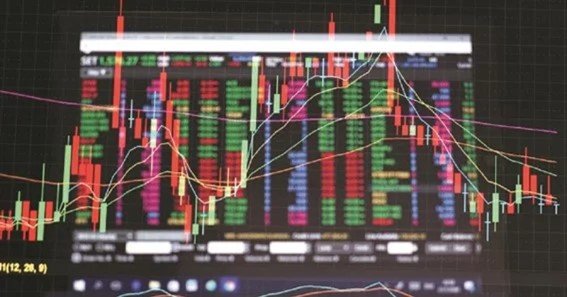For investors keeping a close watch on the Indian media industry, Sun TV share valuation has become a topic of much discussion. As one of the leading regional broadcasters in India, Sun TV Network attracts significant investor interest, but is Sun TV shares overvalued? Understanding the stock’s valuation involves analyzing its financial performance, market trends, and key metrics like the price-to-earnings (P/E) ratio. This article breaks down Sun TV’s valuation and addresses whether the stock is currently trading above its intrinsic value.
Is Sun TV Stock Overvalued?
To determine if Sun TV shares are overvalued, we need to consider several factors, including its recent stock performance, market trends, and financial health. Generally, a stock is considered overvalued if it trades at a higher price than what its fundamentals justify. This can be analyzed by examining metrics like the P/E ratio, revenue growth, and profit margins.
Sun TV stock price analysis reveals that while the company maintains a steady position in the market, shifts in media consumption trends and competition may impact its future growth. Investors often view the stock with caution, especially when external factors push valuations above their fair market value.
Sun TV Share Valuation Metrics
When analyzing the Sun TV share valuation, specific financial metrics provide insights into whether the stock is appropriately priced. Key metrics include:
- Price-to-Earnings Ratio (P/E): A higher P/E ratio suggests that the stock may be overvalued compared to its earnings potential. The Sun TV price-to-earnings ratio can be compared with industry peers to gauge relative valuation.
- Earnings Growth: Analyzing Sun TV’s earnings over recent quarters reveals whether the company is experiencing substantial growth. Sluggish growth could mean that the stock’s current price may not be justified.
- Dividend Yield: Sun TV’s dividend yield is another metric to consider, as higher dividends may attract income-focused investors, potentially driving up the stock price.
Examining these factors helps investors assess the overvaluation of Sun TV shares and determine if current price levels reflect intrinsic value or market speculation.
Factors Affecting Sun TV Stock Price
Factors affecting Sun TV stock price are diverse, ranging from the company’s financial health to broader market trends and industry dynamics. Key factors include:
- Market Sentiment: Positive sentiment around the Indian media industry can drive up share prices, even if fundamentals don’t justify it.
- Shifts in Media Consumption: As digital streaming continues to grow, Sun TV faces increased competition from platforms like Disney+ Hotstar and Netflix. This could impact Sun TV’s revenue growth.
- Regulatory Environment: Regulatory changes impacting the advertising industry or regional broadcasting can influence Sun TV’s financial performance and stock valuation.
These factors highlight potential investment risks with Sun TV shares, especially if the stock’s valuation exceeds the company’s actual growth potential.
Sun TV Financial Performance and Growth Outlook
When evaluating Sun TV financial performance, it’s essential to look at recent revenue trends, profit margins, and overall earnings growth. Sun TV has a strong presence in the South Indian market, with stable revenue from regional viewership and advertising. However, the company’s future growth may be challenged by shifting media consumption trends and the rise of digital platforms, which could impact its long-term market position.
Despite solid financials, the question is Sun TV stock overvalued persists, particularly if growth projections don’t align with current stock prices.
Investment Risks with Sun TV Shares
Investors should be aware of investment risks with Sun TV shares when considering this stock. Some key risks include:
- Dependence on Advertising Revenue: A substantial part of Sun TV’s revenue comes from advertising, which is sensitive to economic downturns and industry shifts.
- Competitive Pressures: The rise of digital platforms increases competition, potentially eroding Sun TV’s market share and impacting revenue.
- Market Volatility: As with any stock, Sun TV’s share price is subject to market fluctuations, which could lead to overvaluation or undervaluation based on sentiment rather than fundamentals.
Understanding these risks is essential for investors to make informed decisions about the Sun TV stock market trends and its long-term growth prospects.
FAQ
- Are Sun TV shares overvalued?
It depends on metrics like the P/E ratio, earnings growth, and broader market conditions. High valuation relative to earnings may indicate overvaluation. - What factors affect Sun TV’s stock price?
Sun TV’s stock price is influenced by its financial performance, market trends, media consumption shifts, and competitive pressures in the broadcasting industry. - How does Sun TV’s financial performance impact its valuation?
Strong financial performance supports higher valuation, but slow earnings growth or high P/E ratios could indicate overvaluation. - What are the risks of investing in Sun TV shares?
Key risks include reliance on advertising revenue, increasing competition from digital platforms, and market volatility affecting stock performance. - How is Sun TV’s price-to-earnings ratio used in valuation?
The P/E ratio helps determine if Sun TV’s share price is high relative to its earnings, providing insights into potential overvaluation or fair pricing.
Conclusion
In conclusion, evaluating whether Sun TV shares are overvalued involves a detailed look at financial performance, market conditions, and competitive dynamics. While Sun TV’s steady revenue from regional audiences supports a positive outlook, the stock’s valuation should align with realistic growth projections and industry challenges. By examining factors like the P/E ratio, earnings growth, and Sun TV stock price analysis, investors can make informed decisions about adding this media stock to their portfolios or waiting for more favorable market conditions.
Disclaimer: This article is for informational purposes only and should not be taken as financial advice. Always consult a financial advisor for investment decisions.










